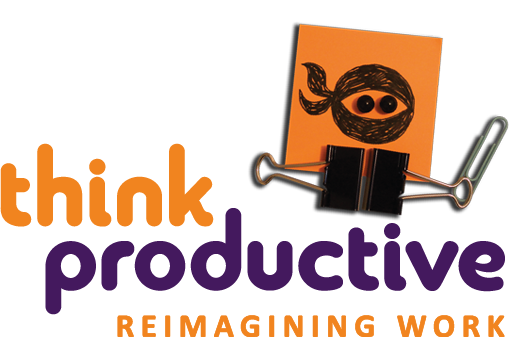Read Graham’s introduction to his year of experimentation, here
Welcome to my year of extreme productivity.
Do you remember “No email fridays“? The idea that for just a day, we could stop checking, pick up the phone to each other, reduce unneccessary communication and, er, get some real work done?
 Well, my January is going to be a no-email month. Friday will be my only email day. The only times in January when I will deal with, check, view, reply or write emails will be Fridays.
Well, my January is going to be a no-email month. Friday will be my only email day. The only times in January when I will deal with, check, view, reply or write emails will be Fridays.
“So, four days away from my email inbox?” you say. Well, actually it’s six. Let’s be honest, so many of us these days have such easy access to our emails via phones and iPads that email gets our attention even when family, self and relaxation should be our only focus.
What’s my hypothesis?
1. Email is distracting.
Sure, there are many constructive uses of email and email itself is a fantastic productivity tool. But when we need something easier to do than the difficult and important stuff we’re supposed to be doing, email is our evil accomplice in sabotaging our productivity.
2. Most emails don’t matter.
Running our email workshops, I see ALOT of inboxes and I see patterns in email traffic and behaviours. When it comes to email, the old adage of 80-20 (where 80% of your impact comes from 20% of your activity) is positively generous. Usually, 20 emails out of 800 are the ones that matter.
3. Batching is magical
Batching similar tasks together is a great way to save time and attention. There is mental set-up time invested to get us to the line with every task. Re-opening or re-focussing on the email inbox and glancing over what’s outstanding and what’s new is an investment.
It’s why when I find myself making a payment on online banking, I’m going through my lists and memory to make sure there’s nothing else I need to do while I’m here. It’s why when we go to the shops, we really don’t want to forget something.
So eliminating set-up time by batching really helps. I’ve experienced this myself in recent years with email. In fact, for the last year or so, I’ve tried to make it a habit to only dive into the inbox after lunch. Do I still “have enough time” to keep my inbox at zero? Of course I do!
4. Parkinson’s law
This brings me nicely to Parkinson’s Law, which says that “work expands to fill the time available”. If I set aside only fridays for email, I want to know if I can still conquer the inbox rather than spreading emails piecemeal througout 7 days.

5. Creating space is the first step to creating balance and creating things
And finally, the trickiest, toughest and scariest part of the hypothesis for me. By creating space in my working life through the removal of email on 4 working days out of 5, my hypothesis is that I will fill this space with 2 things:
– more balance, harmony, presence and perspective
– more quality, chunky pieces of work getting done.
A productivity ninja aims to work in a state of Zen-like calm: relaxed, focussed and in the moment. Email and other communication tools are a constant, niggly distraction to this.
But email is also, if we’re honest, often a great ‘crutch’ that holds us in a position of safety, helping us ‘feel’ productive but removing the need for us to commit to starting or finishing important things because, well, “emails take so much time and I’m so busy with it”. So let’s see over the next month if I do actually make progress with 4 or 5 really chunky bits of work that I’ve been dragging my feet with. I’ll keep you updated on this through the month.
Fears and Downsides
This month is basically a giant period of what I described in my book as stealth and camouflage. As with any such period (long or short), the main worry is how it affects…
a) the team’s sanity
b) the communication flow that helps make things happen
So how will I overcome this? Well, the team will continue to have access to me through our ‘daily huddle’ meeting and despite not having access to my inbox, I will still be spending time in the office. I will try to engage in some regular conversations with the team about how this month’s experiment is going, encourage their honesty and report it back to you here.
And I guess the ultimate fear would be that, having preached the gospel of Getting Your Inbox to Zero for nearly 4 years now, if I found that either I was unable to get back to zero after a day, or that life didn’t really get any better in the other 6 days, then I’ll need to start writing new workshops. But then I know that this stuff really works.
So wish me luck. I’m off to delete apps from my phone, remove my Outlook account from my home screen and generally begin “operation email removal”. During the rest of this week, I’ll report back on the practical steps I’ve taken and what you can do yourself.
For now, I leave you with one question:
Tomorrow at work, for what period of time could you turn email OFF in order to focus on something you need to get done?
Interested in attending one of our email workshops?
Getting back in the email groove thinkproductive.co.uk
TASK: Hack Your Emails to Death thinkproductive.co.uk
The definitive eight-point guide to email inbox nirvana Oliver Burkeman (guardian.co.uk)
The Schrödinger Smart Inbox Forces You to Act on Emails that Matter (Lifehacker)


